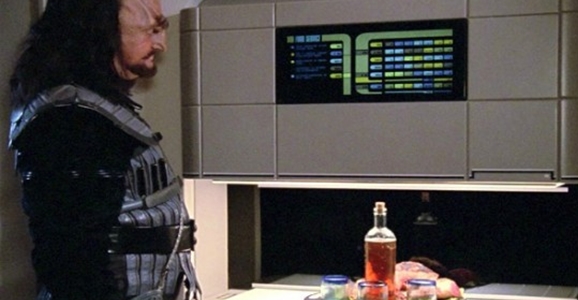Nestle Wants To Create Star Trek-Inspired Food Replication
This article is more than 2 years old
 We’re getting better and better at figuring out how to make food — and by that I mean actually create it from unnatural methods. We can 3D print pastries, burritos, and meat, and we can now also grow meat in a lab. But that may be just the beginning. Food and beverage giant Nestlé wants to take a page from Star Trek and invent a device that designs and creates foods based on individual needs — essentially, they want to make a personalized nutritional replicator.
We’re getting better and better at figuring out how to make food — and by that I mean actually create it from unnatural methods. We can 3D print pastries, burritos, and meat, and we can now also grow meat in a lab. But that may be just the beginning. Food and beverage giant Nestlé wants to take a page from Star Trek and invent a device that designs and creates foods based on individual needs — essentially, they want to make a personalized nutritional replicator.
Nestlé’s Institute of Health Sciences — hang on — Nestlé has an Institute of Health Sciences? Even though they don’t make real chocolate? Okay, suspending belief. Anyway, they’ve started a program called “Iron Man” to study the effects of nutrients on the brain and body. They’re looking into all kinds of stuff, such as biomarkers for obesity and the connections between mineral and nutrient deficiencies and the onset of various illnesses including diabetes, heart disease, and cancer. Eventually, they want to create a device that can survey individuals’ dietary habits and needs, essentially identifying a person’s “nutrient profile,” and produce foodstuffs specifically designed to fill any nutritional gaps in one’s diet. Nestlé’s Institute of Health Sciences director Ed Baetge says, “In the past, food was just food. We’re going in a new direction.” Well, that sounds delicious!
Even though the idea is only in a research phase — Nestlé scientists say the realization of this approach is 5-10 years away — Nestlé claims that Iron Man products will be more effective than vitamins because of their customized approach. Of course, the debate still rages on whether vitamins are helpful at all, as a bunch of recent studies found that they don’t improve cognition or general health. Nestlé already produces nutritional supplements and products for people with various conditions, including Alzheimer’s — it’s a multi-billion-dollar industry for Nestlé, whose Health Sciences head says that Iron Man could lead to “business propositions that today we cannot imagine.” Actually, I can imagine them, which is the problem I have with this whole idea. Figuring out a person’s nutritional signature would undoubtedly be pricey, likely $50-$200 per nutrient. Then the missing nutrients would be delivered, potentially in capsule form, or even via a more high-tech system: “Out comes your food at the press of a button,” says Baetge. “If we do this right, it can be the next microwave in your kitchen.”
For now, I think I’ll stick to 3D-printed pastries.












